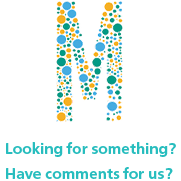The physicist Roger Penrose identified three worlds and three mysteries pertaining to them. The worlds include physical reality, the world of consciousness (the mind), and mathematics. As fellow physicist Mario Livio explains Penrose's three mysteries: "One mystery is that somehow, out of the physical world, our world of consciousness has emerged [...] A second mystery is that somehow our world of consciousness, or mental world, gained access to this world of mathematical forms; that we were able to invent and discover all these mathematics. And third and maybe most amazing mystery is that we find that this world of mathematics provides the explanations for the physical world."
Livio explains that puzzles concerning where math comes from, why it works, and how we have accessed it reach the spiritual and even theological. They invite us to ponder what our way of being in the world means, including how we are related to our own thoughts and perceptions, and the physical universe we originate within.
Our relationship with math is also relevant to questions about what other mindful and/or organizing forces might be at work in the universe that we don't yet fully understand. Livio asks "how come that mathematics is as powerful as it is in explaining almost everything in the universe?" and "is mathematics discovered? — namely, [is] mathematics [already] out there and we are just discovering the truths of mathematics — or is it an invention of the human mind and it really has no existence outside the human mind?"
We don't think usually think of math as relevant to spirituality. In some contexts, it shows up as one of the most concrete parts of life. Spiritual puzzles about math may point to other intersections of our mundane lives and studies that hold mysteries hidden in plain sight. New angles on familiar things can prompt enriching questions about what it means to be human and to be alive. For more of Mario Livio's thoughts on the spiritual mysteries of math, listen to Livio's interview with Krista Tippett from the On Being Podcast.
What to read next:

